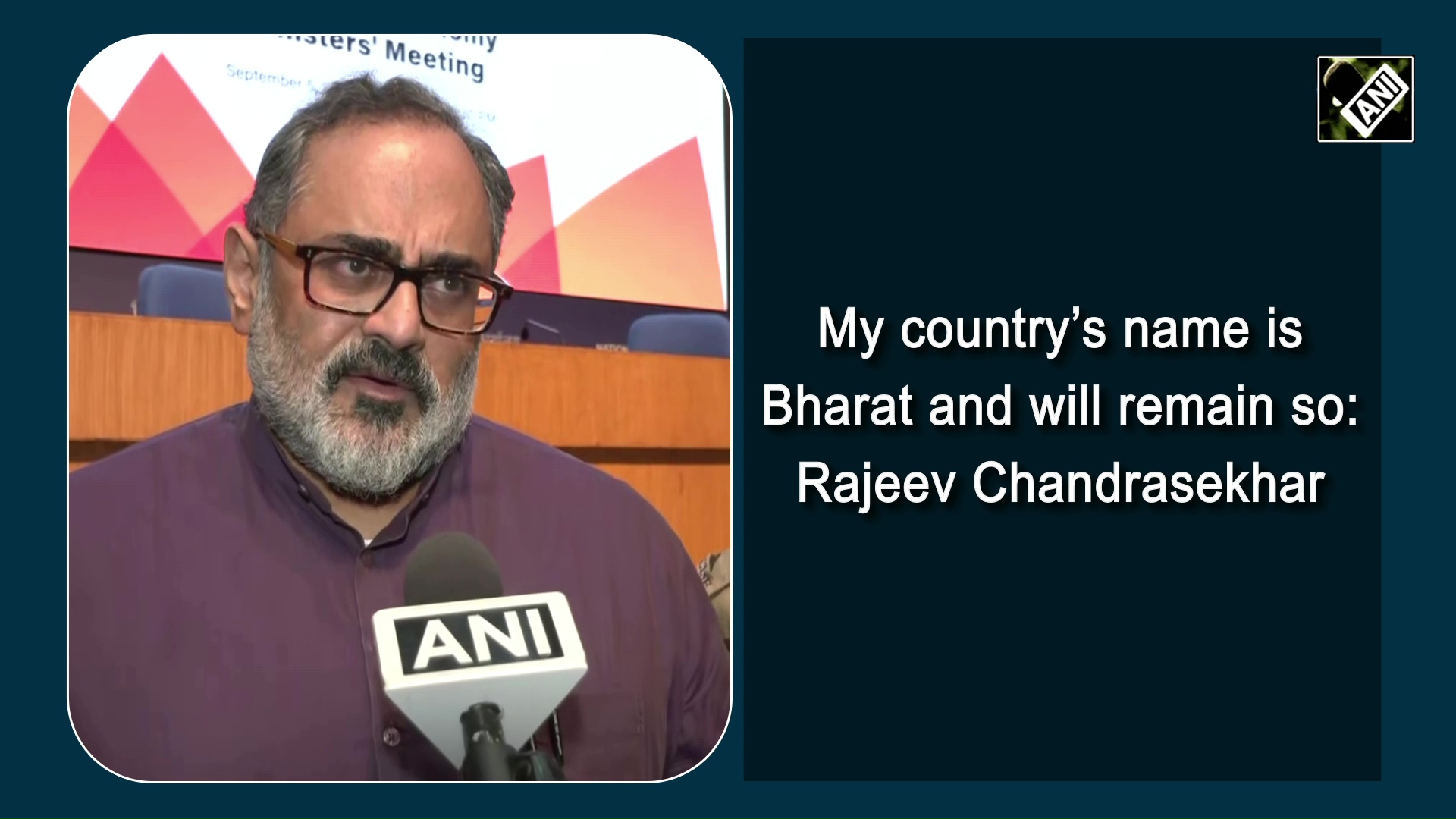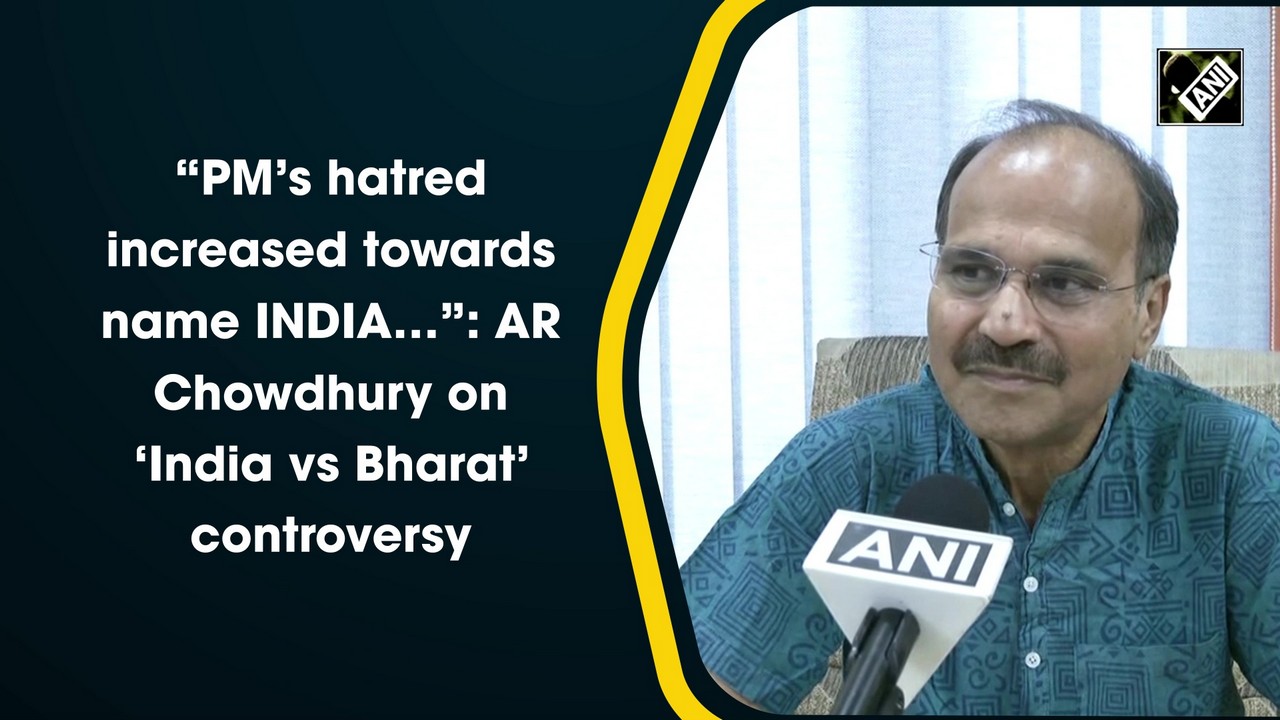India's government replaces 'India' with ancient name 'Bharat' in dinner invitation to G20 guests

India's government replaces 'India' with ancient name 'Bharat' in dinner invitation to G20 guests© Provided by The Canadian Press
NEW DELHI (AP) — Prime Minister Narendra Modi’s government has replaced the name India with a Sanskrit word in dinner invitations sent to guests attending this week's Group of 20 summit, in a move that reflects his Hindu nationalist party’s efforts to eliminate what it sees as colonial-era names.
Indian President Droupadi Murmu is referred to as “President of Bharat” instead of “President of India” in the invitation sent to G20 attendees. The nation of more than 1.4 billion people is officially known by two names, India and Bharat, but the former is most commonly used, both domestically and internationally.
Bharat is an ancient Sanskrit word which many historians believe dates back to early Hindu texts. The word also means India in Hindi.
The change in nomenclature is backed by officials of Modi’s Bharatiya Janata Party. They argue that the name India was introduced by British colonials and is a “symbol of slavery.” The British ruled India for about 200 years until the country gained independence in 1947.
“Another blow to slavery mentality,” the top elected official of Uttarakhand state, Pushkar Singh Dhami, said on X, formerly known as Twitter. Dhami, who is a leader of Modi's governing party, shared the dinner invitation sent to G20 guests in his post.
Modi’s party has long tried to erase names related to India’s Mughal and colonial past.
Related video: “Whole world knows us with name ‘India’, why change now?” WB CM asks Centre (ANI Video) Duration 1:14 View on Watch
In 2015, New Delhi’s famous Aurangzeb Road, named after a Mughal king, was changed to Dr. APJ Abdul Kalam Road after protests from Modi’s party leaders. Last year, the government also renamed a colonial-era avenue in the heart of New Delhi that is used for ceremonial military parades.
Modi’s government says the name changes are an effort to reclaim India’s Hindu past.
India’s opposition parties, however, criticized the move.
“While there is no constitutional objection to calling India “Bharat,” which is one of the country’s two official names, I hope the government will not be so foolish as to completely dispense with “India,” which has incalculable brand value built up over centuries,” opposition lawmaker Shashi Tharoor said on X.
Tharoor said Indians should “continue to use both words rather than relinquish our claim to a name redolent of history, a name that is recognized around the world.”
Disputes over “India” versus “Bharat” have gained ground since opposition parties in July announced a new alliance — called INDIA — to unseat Modi and defeat his party ahead of national elections in 2024. The acronym stands for Indian National Developmental Inclusive Alliance.
Since then, some officials in Modi’s party have demanded that the country be called Bharat instead of India.
Sheikh Saaliq, The Associated Press
India astir over rumoured plans to change country's name
TUESDAY SEPTEMBER 05 2023

Devotees play drums during a procession to carry a tall idol of the Hindu deity Ganesha, in Mumbai, India on September 3, 2023.
TUESDAY SEPTEMBER 05 2023

Devotees play drums during a procession to carry a tall idol of the Hindu deity Ganesha, in Mumbai, India on September 3, 2023.
PHOTO | PUNIT PARANJPE |
By AFP
India was buzzing with speculation Tuesday over rumoured plans to scrap official usage of the country's English name, after a state-issued invite sent to world leaders referred to it as "Bharat".
Prime Minister Narendra Modi's government has worked to remove lingering symbols of British rule from India's urban landscape, political institutions and history books, but its next move could be the biggest such action yet.
Modi himself typically refers to India as "Bharat", a word dating back to ancient Hindu scriptures written in Sanskrit, and one of two official names for the country under its constitution.
Members of his Hindu-nationalist ruling party have previously campaigned against using the country's better-known moniker, India, which has its roots in Western antiquity and was imposed during the British conquest.
This weekend India hosts the G20 summit of world leaders, capped with a state dinner that invitation cards said would be hosted by the "President of Bharat".
The government has called a special session of parliament for later in the month while remaining tight-lipped about its legislative agenda.
But broadcaster News18 said unnamed government sources had told it that BJP lawmakers would put forward a special resolution to give precedence to the name "Bharat".
Rumours of the plan were enough to spark a mix of opposition lawmakers and enthusiastic support from other quarters.
"I hope the government will not be so foolish as to completely dispense with 'India'," Shashi Tharoor of the opposition Congress party said on X, formerly known as Twitter.
"We should continue to use both words rather than relinquish our claim to a name redolent of history, a name that is recognised around the world."
Former Test cricketer Virender Sehwag said he welcomed the prospect of a name change and urged India's cricket board to begin using "Bharat" on team uniforms.
"India is a name given by the British (and) it has been long overdue to get our original name 'Bharat' back," he wrote.
For decades, Indian governments of various stripes have sought to excise traces of the British colonial era by renaming roads and even entire cities.
The process has intensified under the government led by Modi, who has in public speeches stressed the need for India to abandon traces of a "colonial mindset".
His administration renovated the capital New Delhi's parliamentary precinct, originally designed by the British, to replace colonial-era structures.
Last month, it outlined plans for a sweeping overhaul of India's pre-independence criminal code to remove references to the British monarchy and what Home Minister Amit Shah described as "other signs of our slavery".
Modi's government has also removed Islamic place names imposed during the Mughal empire that preceded British rule, a move critics say is emblematic of a desire to assert the supremacy of India's majority Hindu religion.
By AFP
India was buzzing with speculation Tuesday over rumoured plans to scrap official usage of the country's English name, after a state-issued invite sent to world leaders referred to it as "Bharat".
Prime Minister Narendra Modi's government has worked to remove lingering symbols of British rule from India's urban landscape, political institutions and history books, but its next move could be the biggest such action yet.
Modi himself typically refers to India as "Bharat", a word dating back to ancient Hindu scriptures written in Sanskrit, and one of two official names for the country under its constitution.
Members of his Hindu-nationalist ruling party have previously campaigned against using the country's better-known moniker, India, which has its roots in Western antiquity and was imposed during the British conquest.
This weekend India hosts the G20 summit of world leaders, capped with a state dinner that invitation cards said would be hosted by the "President of Bharat".
The government has called a special session of parliament for later in the month while remaining tight-lipped about its legislative agenda.
But broadcaster News18 said unnamed government sources had told it that BJP lawmakers would put forward a special resolution to give precedence to the name "Bharat".
Rumours of the plan were enough to spark a mix of opposition lawmakers and enthusiastic support from other quarters.
"I hope the government will not be so foolish as to completely dispense with 'India'," Shashi Tharoor of the opposition Congress party said on X, formerly known as Twitter.
"We should continue to use both words rather than relinquish our claim to a name redolent of history, a name that is recognised around the world."
Former Test cricketer Virender Sehwag said he welcomed the prospect of a name change and urged India's cricket board to begin using "Bharat" on team uniforms.
"India is a name given by the British (and) it has been long overdue to get our original name 'Bharat' back," he wrote.
For decades, Indian governments of various stripes have sought to excise traces of the British colonial era by renaming roads and even entire cities.
The process has intensified under the government led by Modi, who has in public speeches stressed the need for India to abandon traces of a "colonial mindset".
His administration renovated the capital New Delhi's parliamentary precinct, originally designed by the British, to replace colonial-era structures.
Last month, it outlined plans for a sweeping overhaul of India's pre-independence criminal code to remove references to the British monarchy and what Home Minister Amit Shah described as "other signs of our slavery".
Modi's government has also removed Islamic place names imposed during the Mughal empire that preceded British rule, a move critics say is emblematic of a desire to assert the supremacy of India's majority Hindu religion.



No comments:
Post a Comment